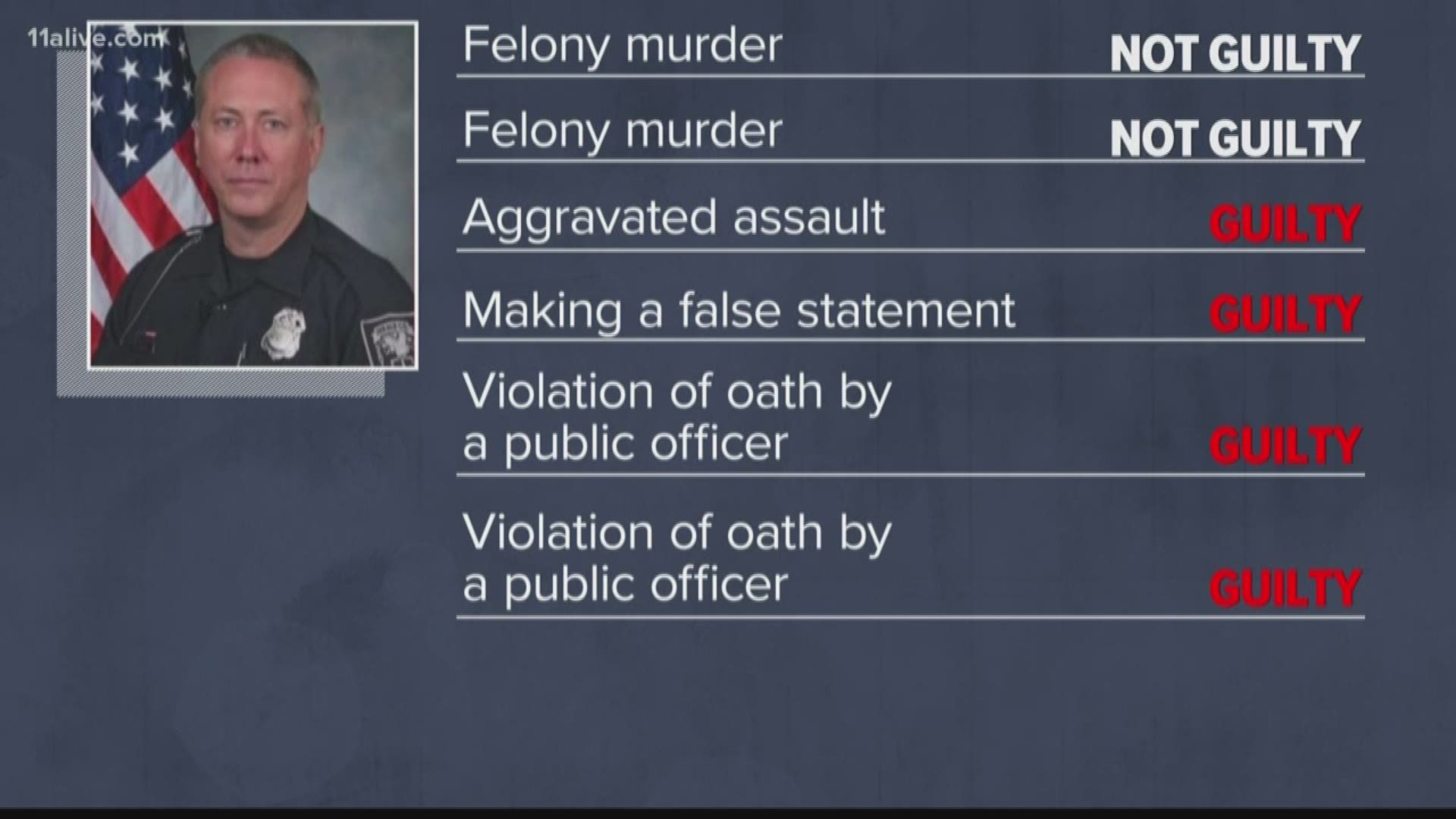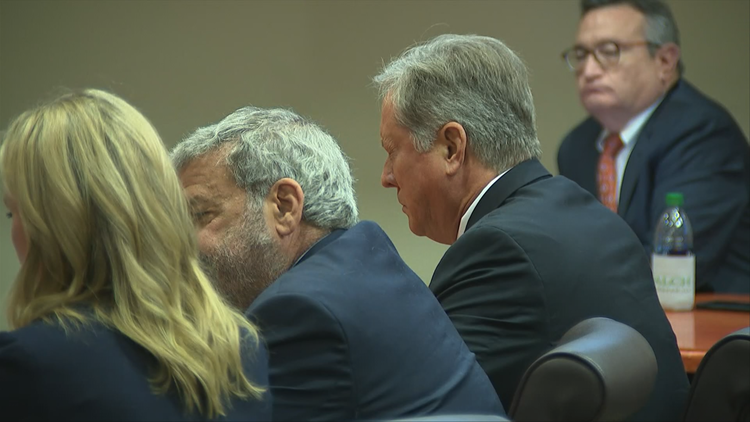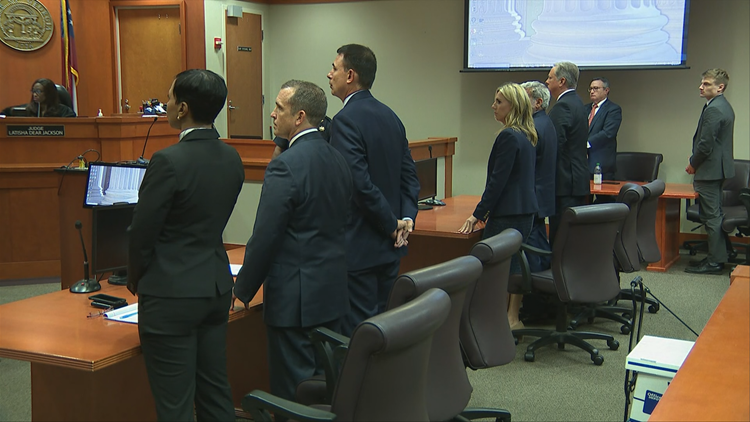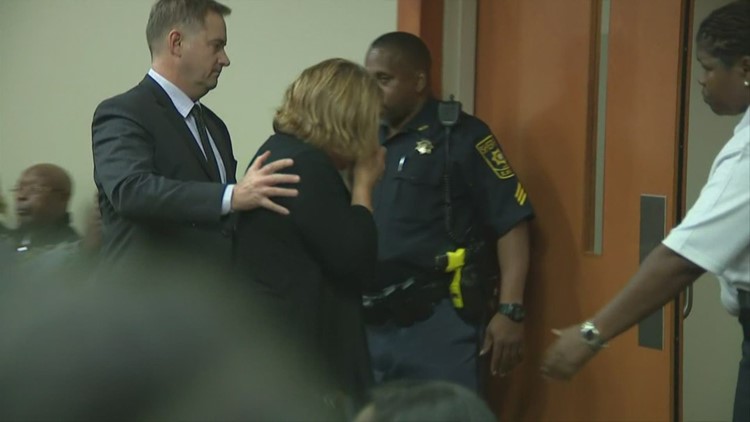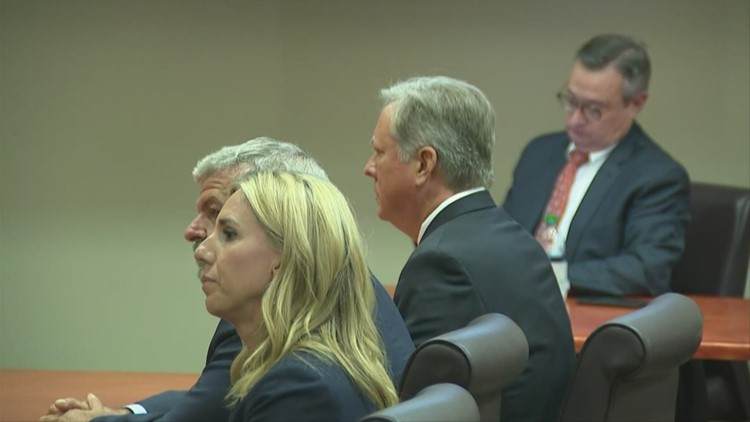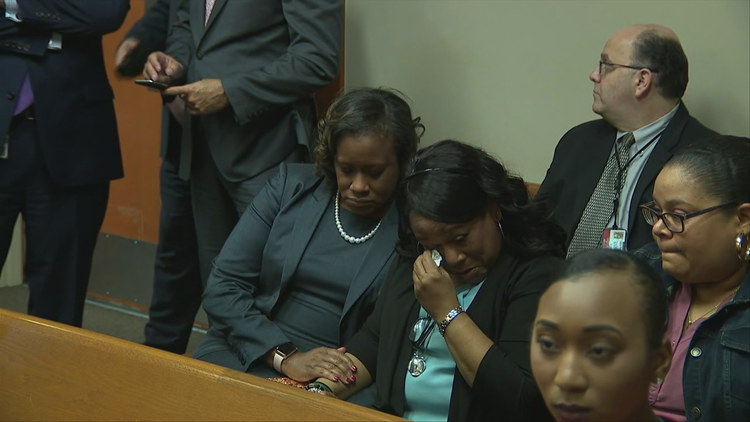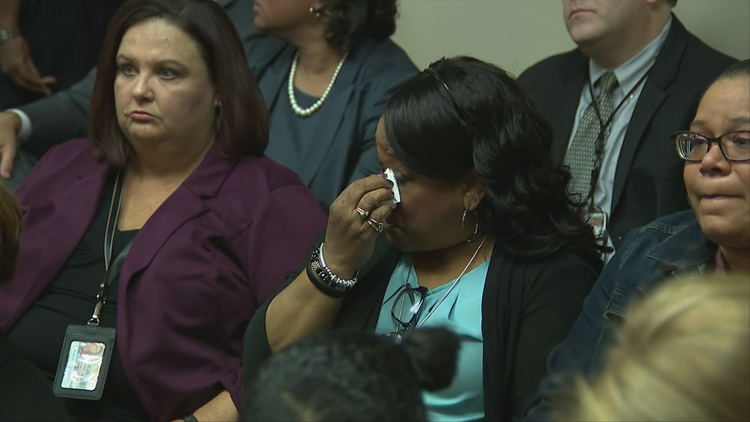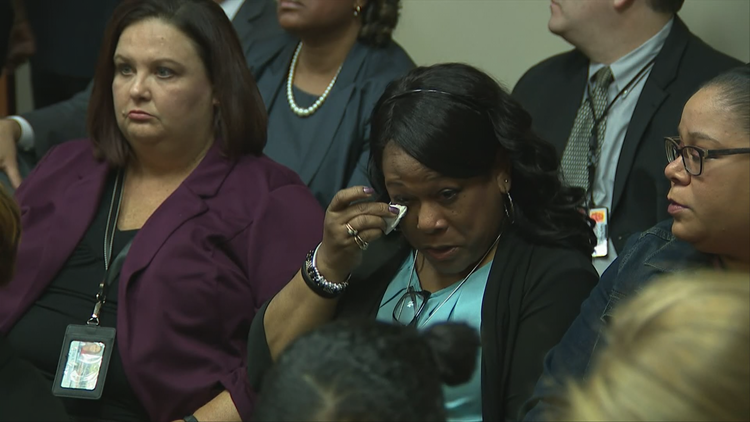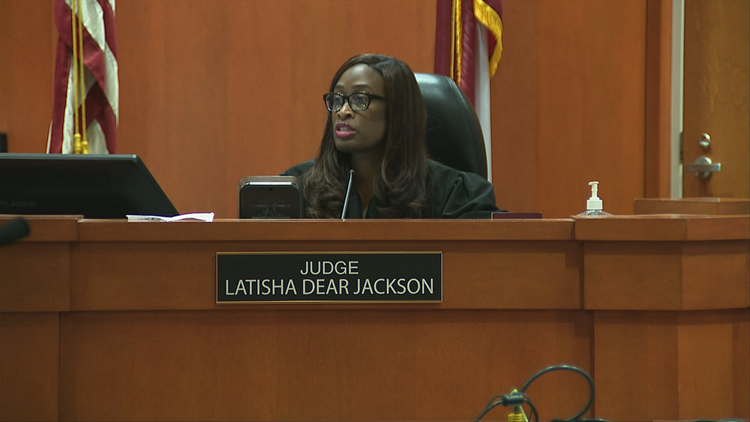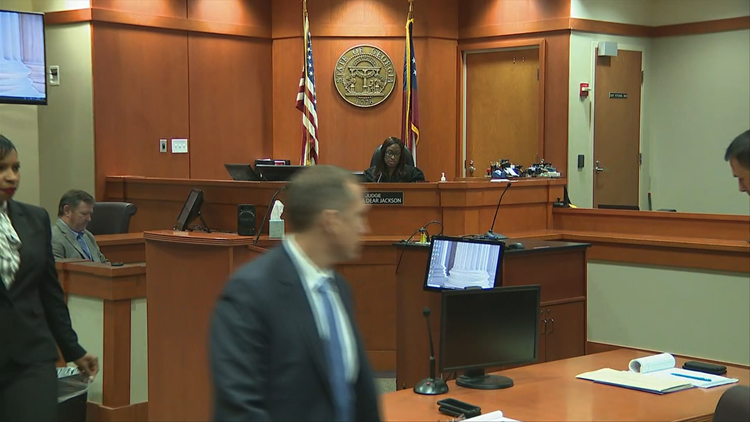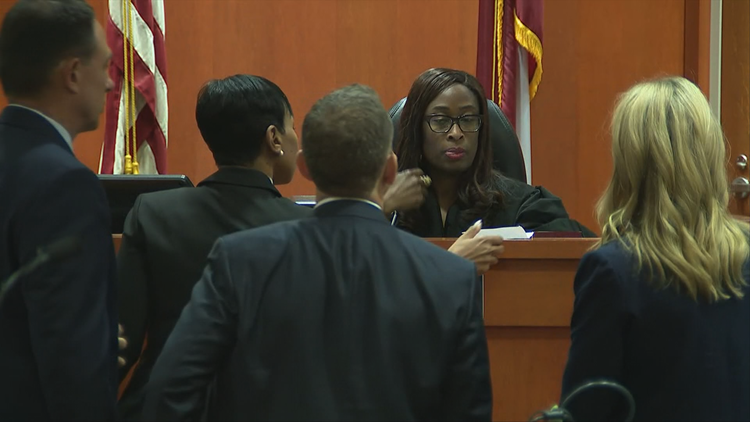In weighing the case against Robert Olsen, a former DeKalb County officer charged with murder in the 2015 shooting death of a naked, unarmed Air Force veteran, a jury was faced with the difficult question of where to draw the line for how to reasonably react in an encounter that lasted only a few seconds.
Olsen had faced six charges, which ranged from aggravated assault to murder.
Twelve DeKalb County jurors - who struggled for the better part of a week to come to agreement on the charges - returned a mixed decision, finding Olsen not guilty on two felony counts of murder, but found him guilty on the rest of the charges: one count of aggravated assault, one count of making false statements and two counts of violation of oath of office.
Olsen's bond was set at $80,000. Jail records show he bonded out Monday evening, hours after jury convicted him on some of the charges, but not murder.


FULL VERDICT
- Count 1: Felony murder - not guilty
- Count 2: Felony murder - not guilty
- Count 3: Aggravated assault - guilty
- Count 4: Violation of oath of office - guilty
- Count 5: Making false statements - guilty
- Count 6: Violation of oath of office - guilty
Olsen will be sentenced on Nov. 1 after his defense team asked for a delay, Judge Latisha Dear Jackson ruled. He is also required to wear and ankle monitor. He will have a daily curfew of 7 a.m. to 6 p.m. until the sentencing.
If sentenced consecutively, he could face up to 35 years in prison.
As the verdict was read, Olsen's wife was led crying out of the court. Hill's mother could also be seen wiping away tears.
Prosecutors had argued Hill, naked and in the midst of a mental health crisis related to PTSD and bipolar disorder stemming from his service in Afghanistan, clearly posed no threat to Olsen.
Defense lawyers argued the situation was so fraught with uncertainty and unfolded so quickly, the officer was justified in reacting defensively with force.
Verdict in Olsen trial
The defense presented one witness who said it looked like Olsen was being attacked, while prosecutors called an office worker at the apartment complex who testified she only called 911 because she was worried about Hill's state of mind, and not because she considered him threatening in any way.
Prosecutors seized on video and testimony that showed Olsen's seemingly frantic response in the moments after the shooting and the misleading account he gave in its immediate aftermath - another officer testifying he was told "(Hill) ran towards him and was ‘pounding on him.'"
It was never disputed in court that Hill was shot and fell before reaching Olsen, at least a few feet away.
Defense lawyers made note that the officer yelled stop multiple times, which Hill did not, and explained that when Olsen arrived on scene he had none of the context - Hill's military service, his possible mental state - that indicated the situation was not a seriously threatening one.
Olsen was a "good cop who had to make a tough decision," they argued.
“That’s what this case was about: were his actions reasonable. Were the defendant’s actions reasonable that day?" DeKalb County prosecutor Pete Johnson asked during closing arguments.
The jury ultimately answered that, to a certain extent, they both were and were not.
MORE FROM THIS TRIAL

